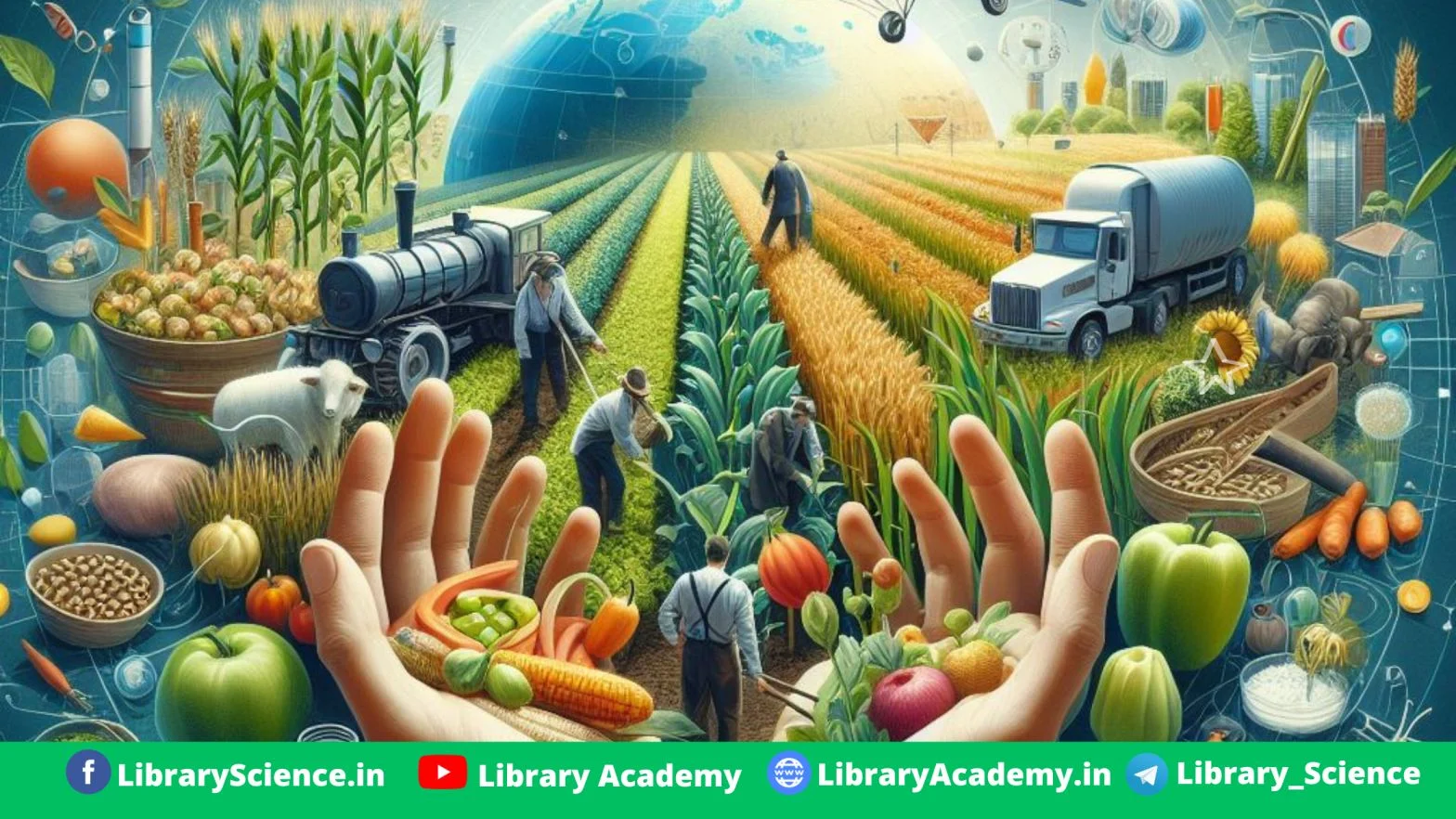What are the AGRIS, AGRIS 2.0, AGMES, AGROVOC, IMARK, and PubAg, their Headquarters, Function, and Established.
AGRIS, which stands for the International System for Agricultural Science and Technology, is a global public database that provides access to a comprehensive collection of literature on agriculture and food, It is managed by the Food and Agriculture Organization of the United Nations (FAO) Since 1974.
AGRIS headquarters is in Rome,
Italy. ICAR, New Delhi is the
headquarters of AGRIS in India. AGRIS has 195 member countries, 194 countries,
and the European Union, FAO works in over 130 countries worldwide.
AGRIS serves
as a repository for bibliographic information, including research articles,
conference papers, technical reports, and other literature related to
agriculture.
Functions of
AGRIS: The AGRIS (International System for Agricultural Science and Technology)
database serves several important functions related to the dissemination and
retrieval of information in the field of agriculture and related sciences. Here
are some of the key functions of AGRIS:
a. AGRIS is
a bibliographic database that aggregates and organizes metadata and
bibliographic information about research articles, conference papers, reports,
and other literature related to agriculture and allied sciences.
b. AGRIS facilitates the exchange of information
and knowledge among researchers, scientists, policymakers, and other
stakeholders in the global agricultural community. AGRIS contributes to
collaboration and the sharing of research findings.
c. The
database covers a broad spectrum of subjects within the agricultural domain,
including crop science, animal science, forestry, fisheries, food production,
and rural development.
d. AGRIS
supports agricultural research and policy development by providing access to a
wealth of scientific literature.
e. AGRIS is
available online, making it easily accessible to users around the world.
f. AGRIS
collaborates with various institutions, organizations, and countries to collect
and disseminate agricultural information.
Overall,
AGRIS plays a crucial role in facilitating the flow of agricultural
information, supporting research and development efforts, and contributing to
the advancement of sustainable agricultural practices worldwide.
AGRIS Programs are:
AgMES: AgMES
stands for Agricultural Metadata Element Set, and it is a metadata standard
developed by the Food and Agriculture Organization of the United Nations (FAO).
AgMES is designed to facilitate the exchange and interoperability of
agricultural information at the global level.
AGROVOC:
AGROVOC was first published 1980s by FAO. AGROVOC is a controlled vocabulary,
or thesaurus, developed by the Food and Agriculture Organization of the United
Nations (FAO). It is designed to facilitate the indexing, retrieval, and
exchange of agricultural information.
IMARK: IMARK
(Information Management Resource Kit) is a suite of training materials and
resources developed by the Food and Agriculture Organization of the United
Nations (FAO) in collaboration with other international organizations. The goal
of IMARK is to enhance the information management skills of individuals and
institutions working in the fields of agriculture, food security, and rural
development.
PubAg: PubAg
is a full-text database on scientific research publications related to
agriculture.
AGRIS 2.0:
It was released in 2013 by FAO. a global
public database maintained by the Food and Agriculture Organization of the
United Nations (FAO).
The primary goal of AGRIS is to facilitate the exchange of information and knowledge among researchers, scientists, policymakers, and other stakeholders in the agricultural sector. It covers a wide range of topics, including crop science, animal science, forestry, fisheries, food production, and rural development.


Post a Comment